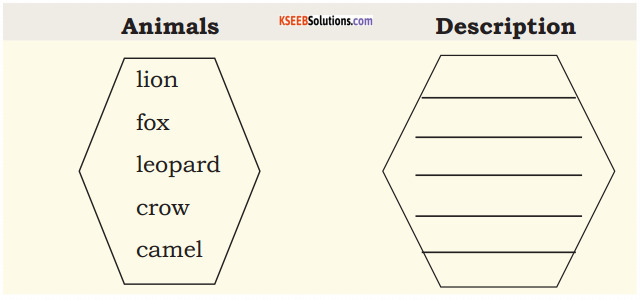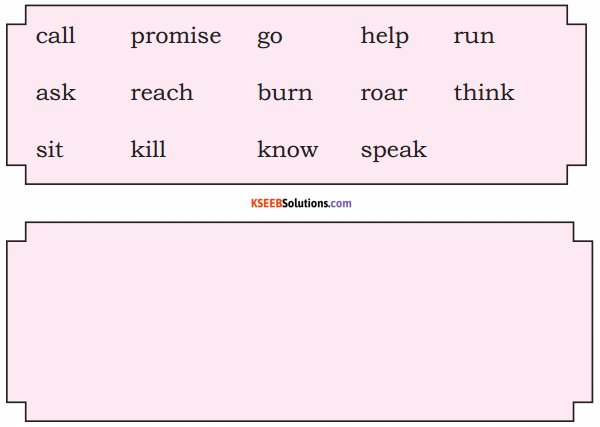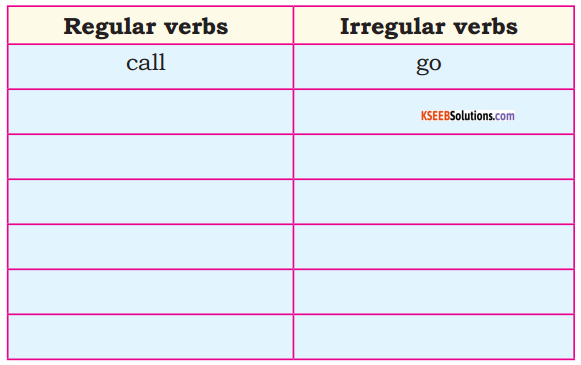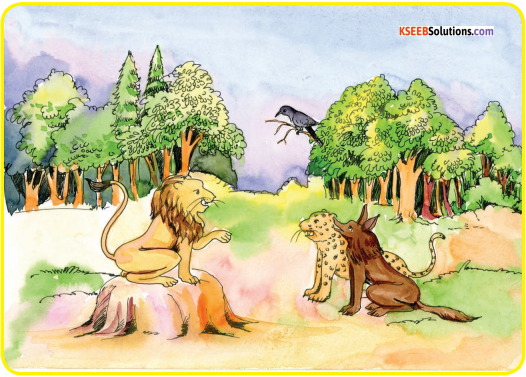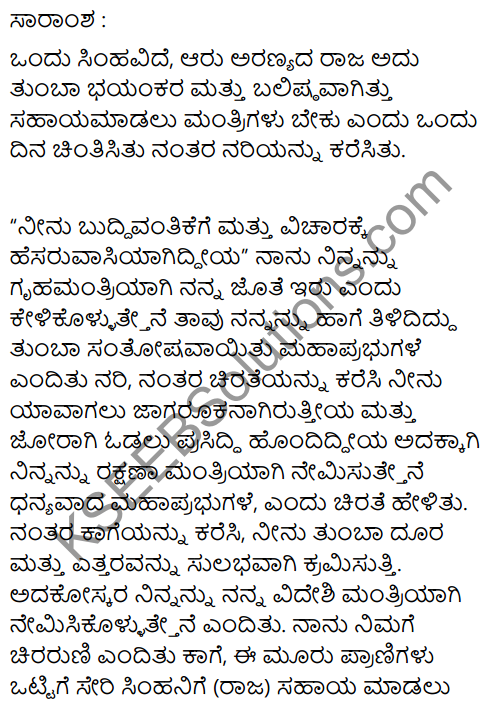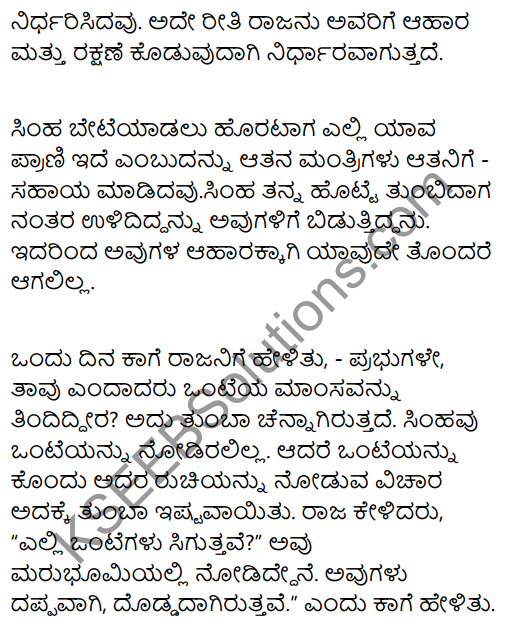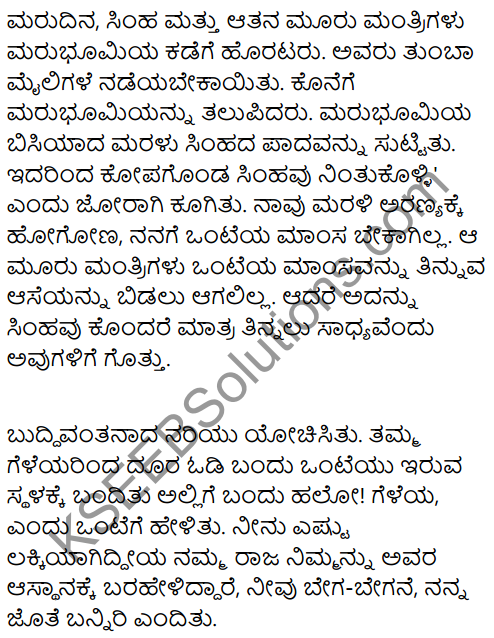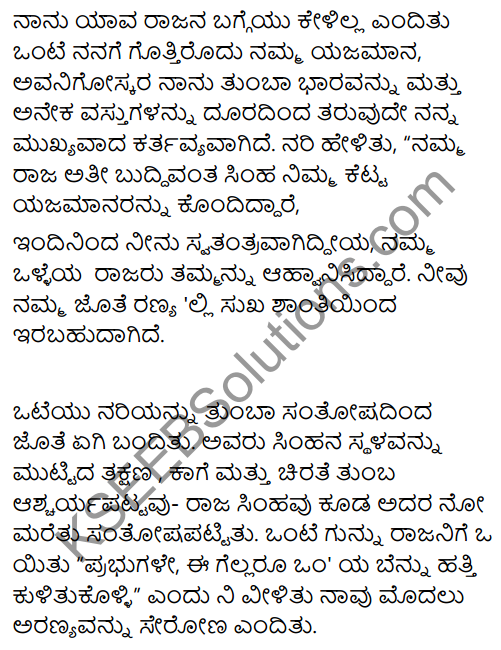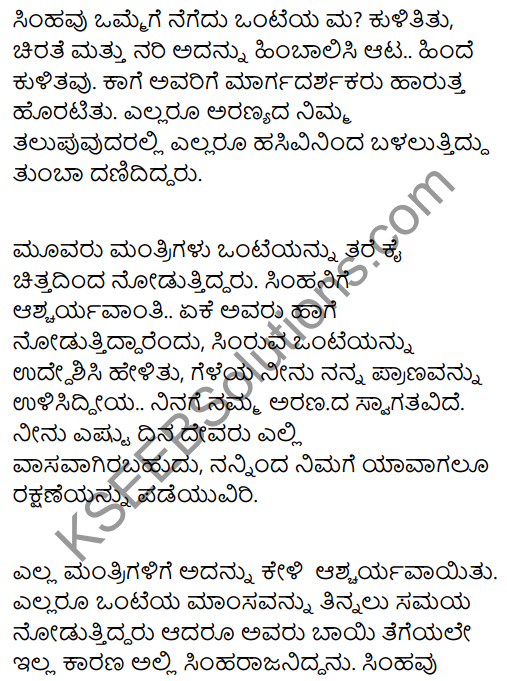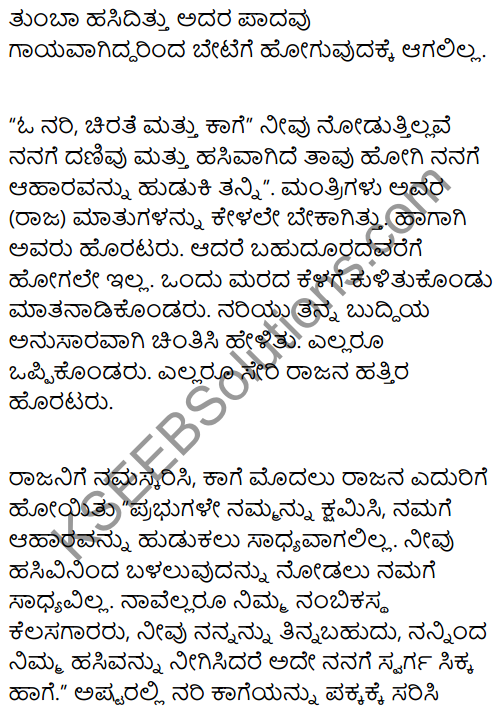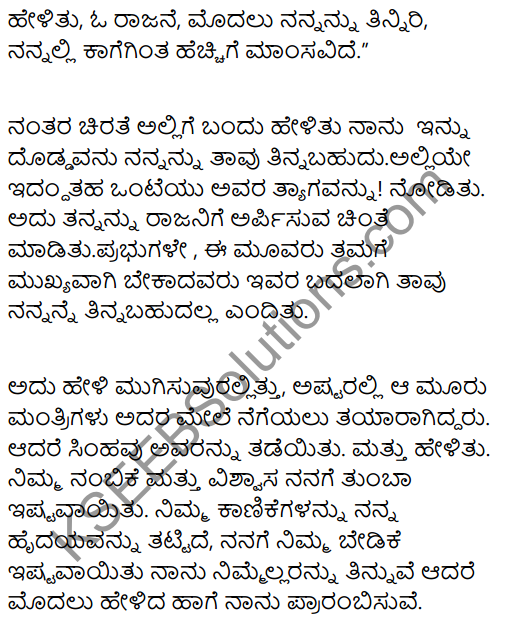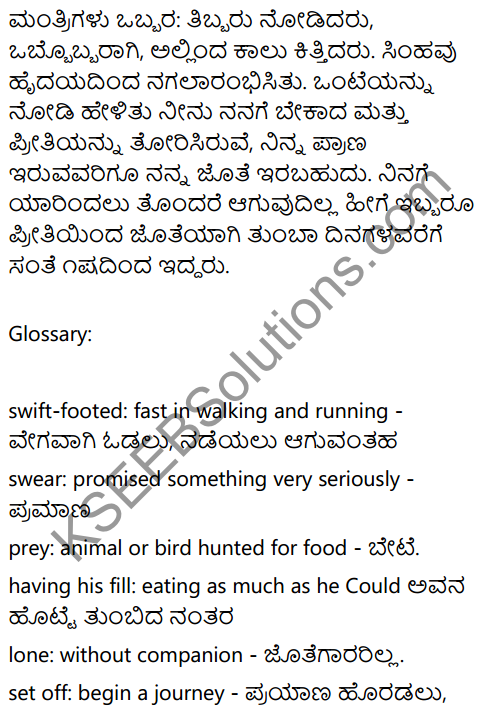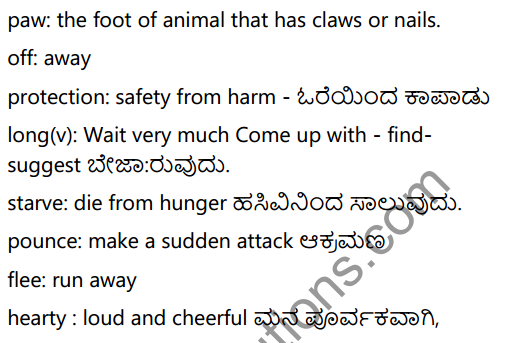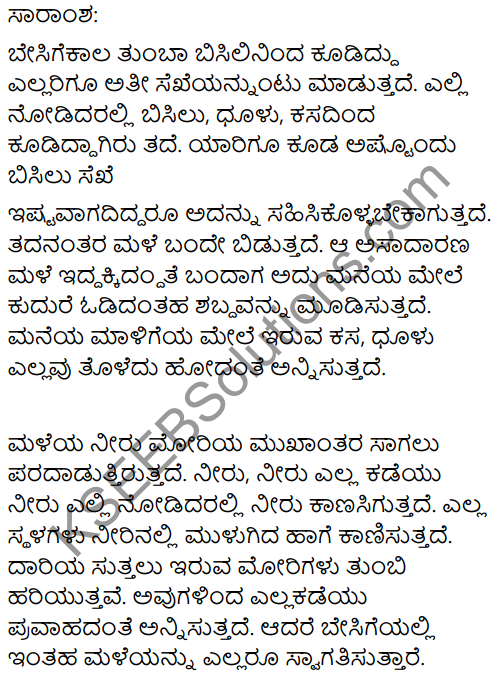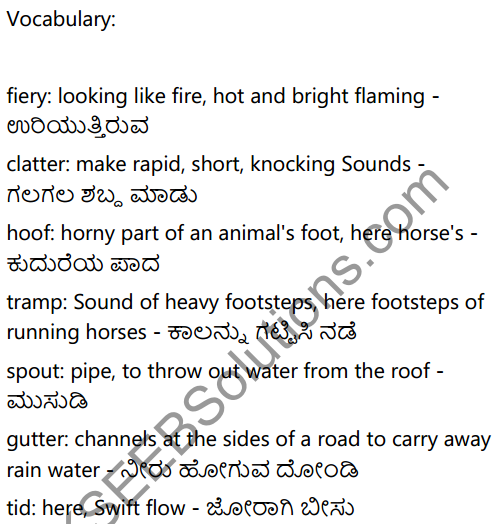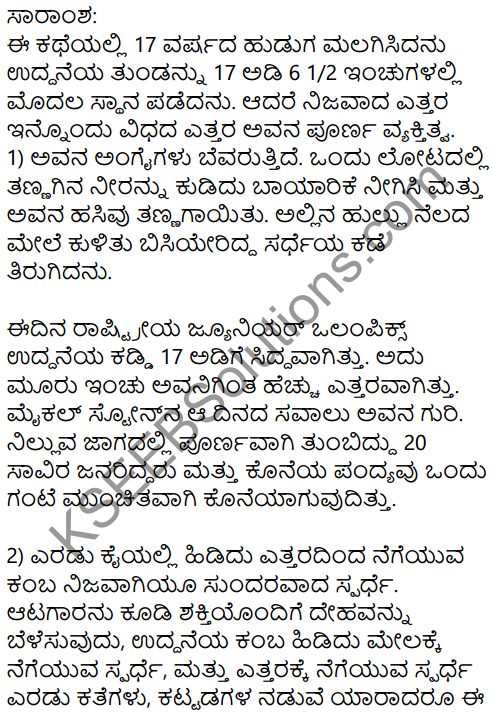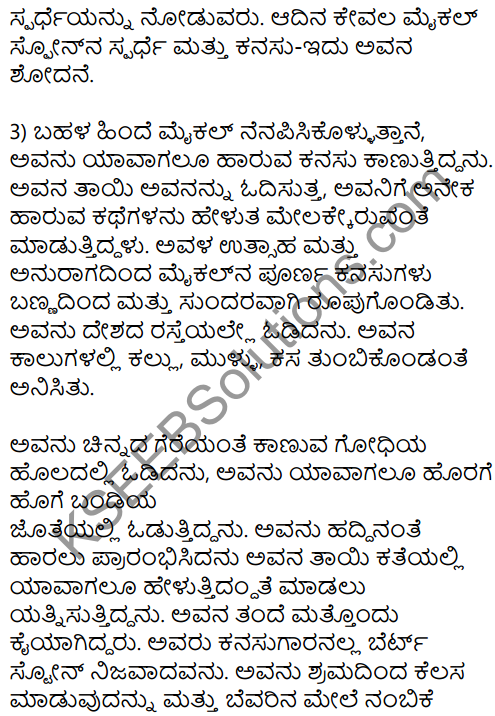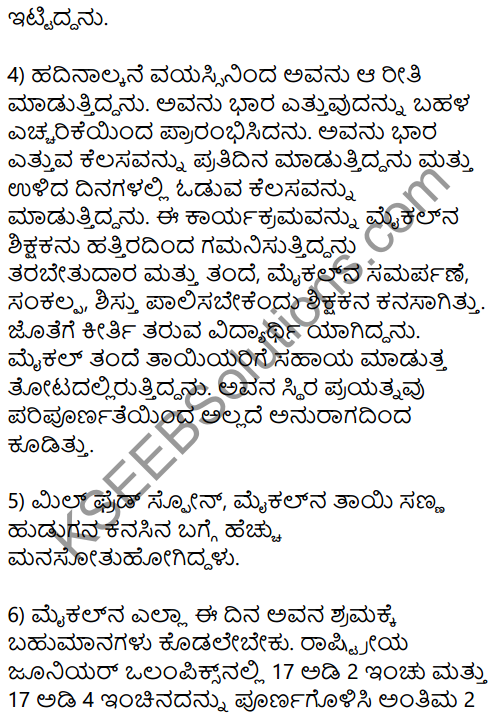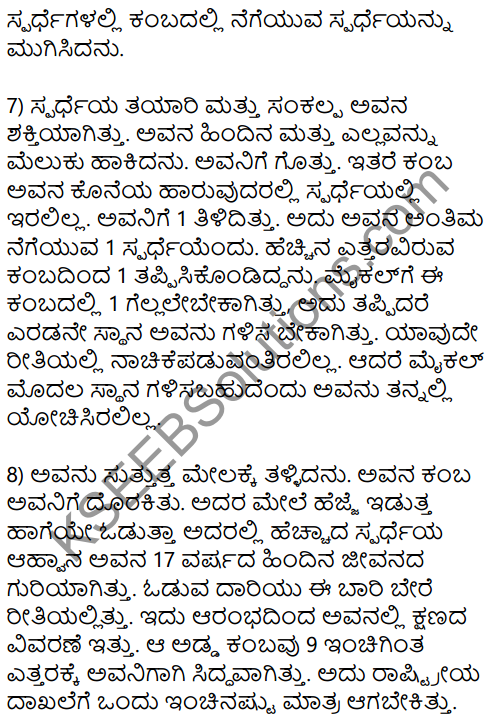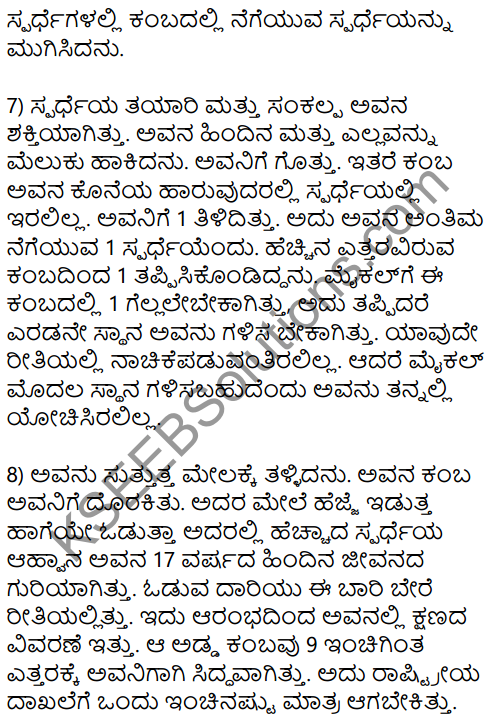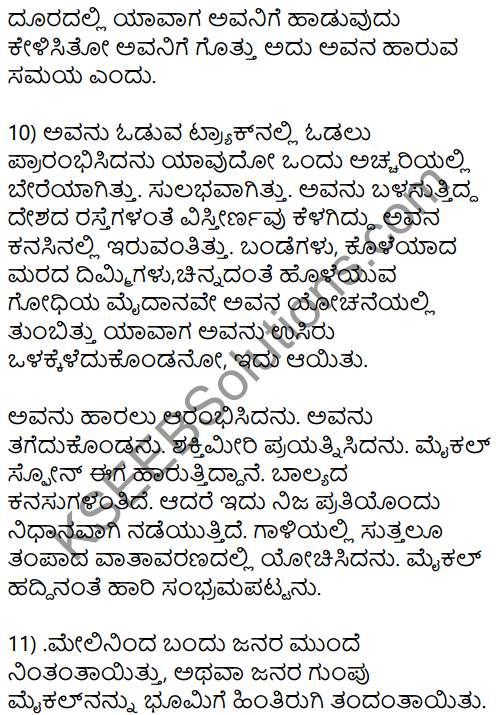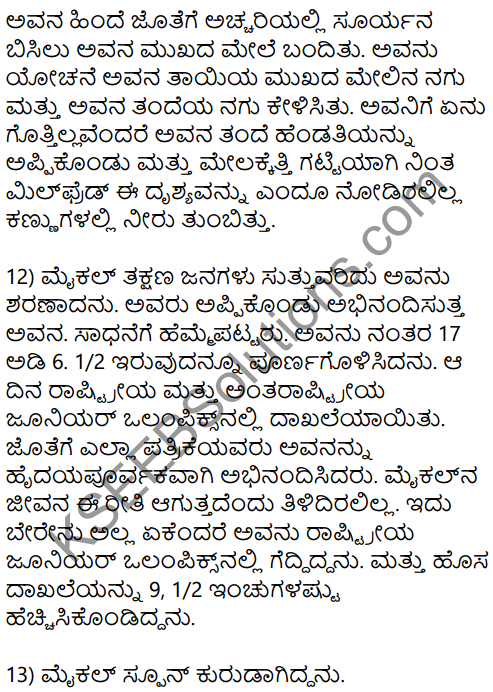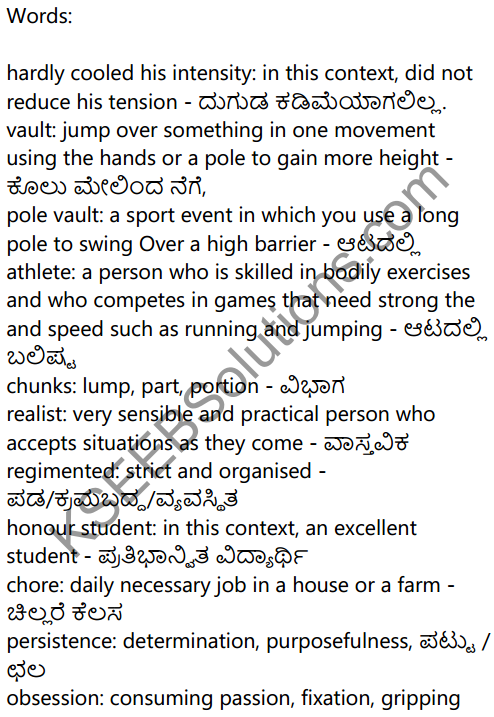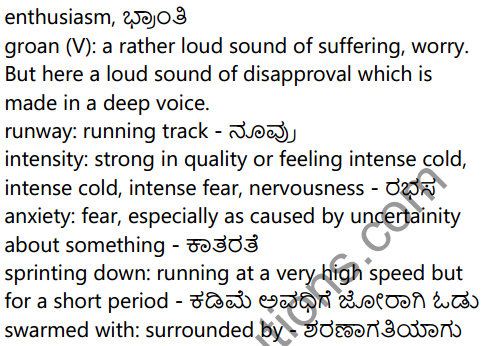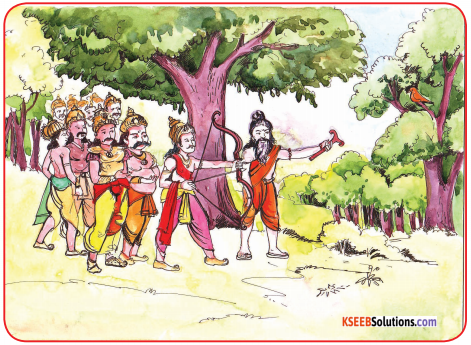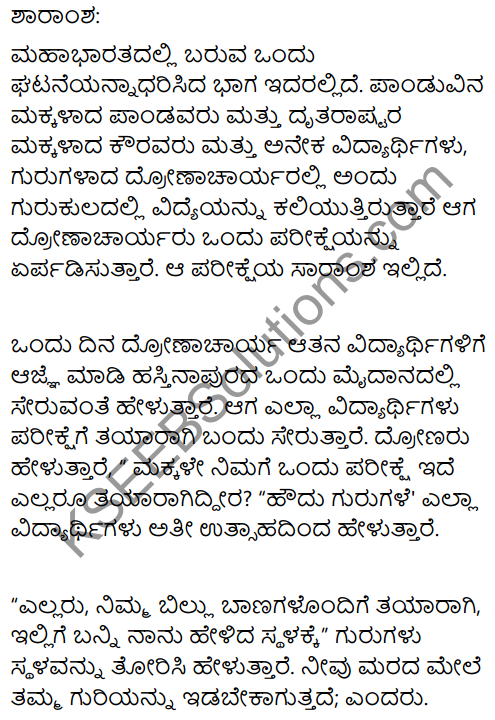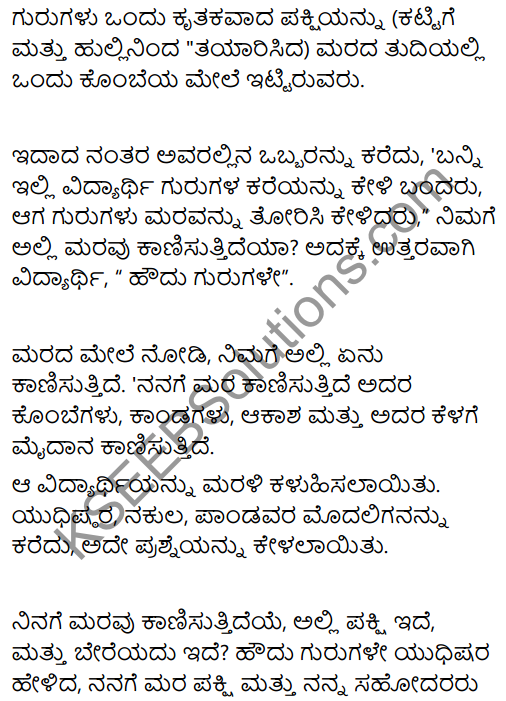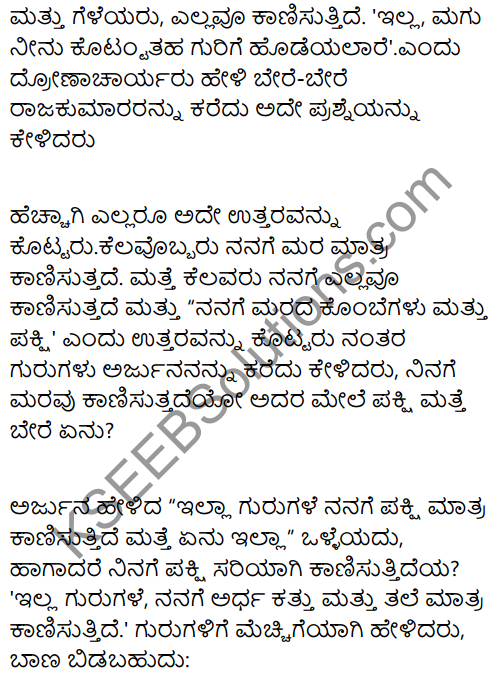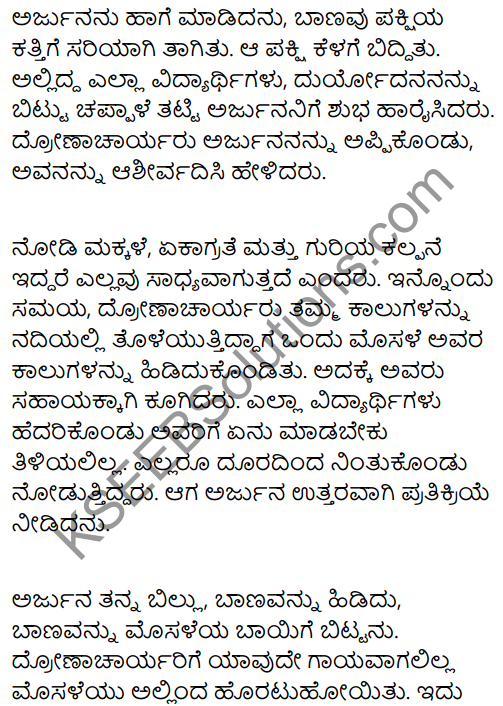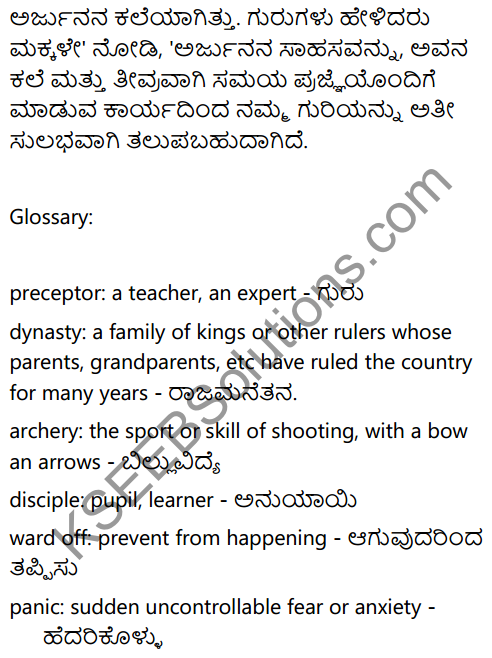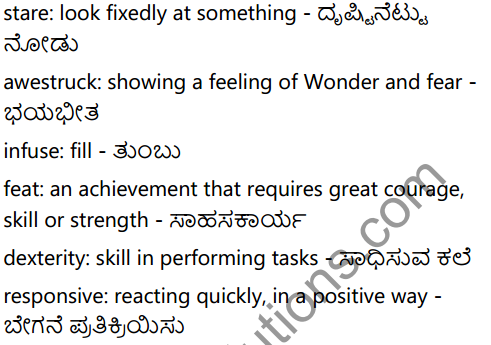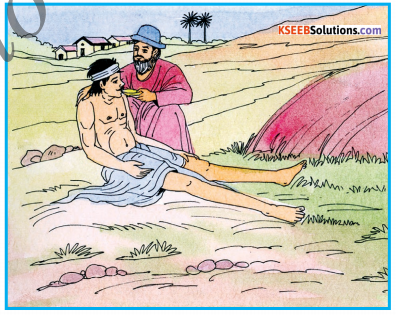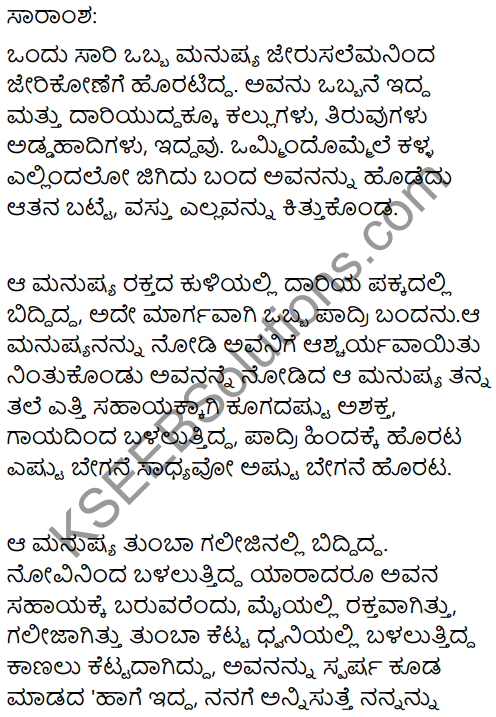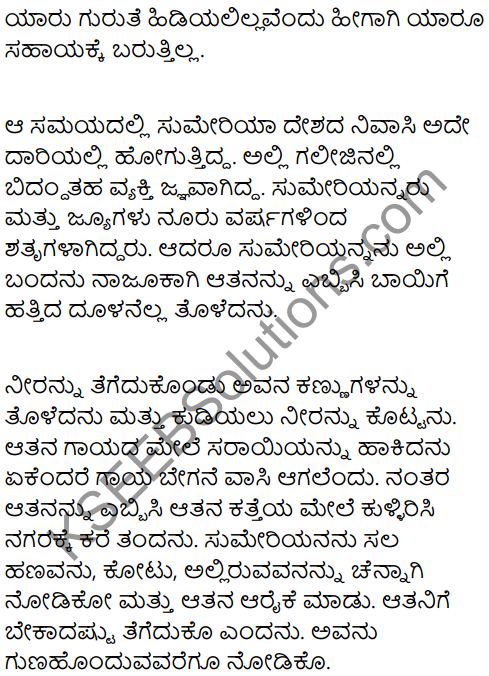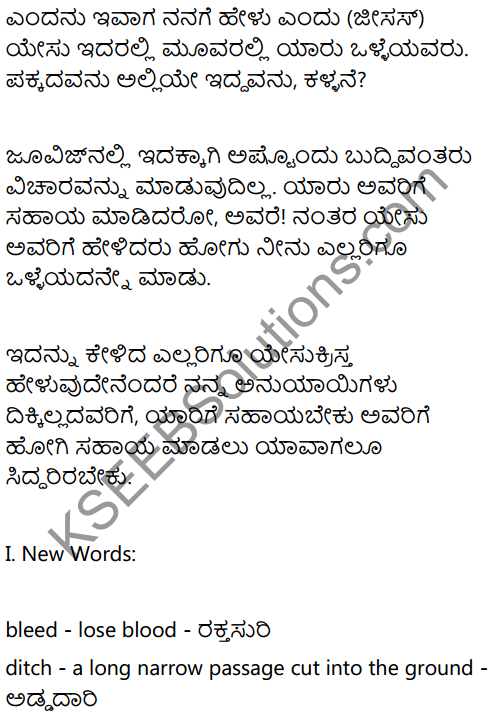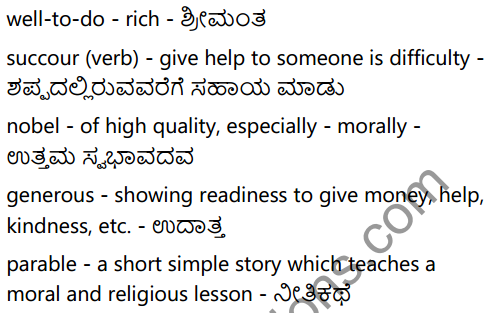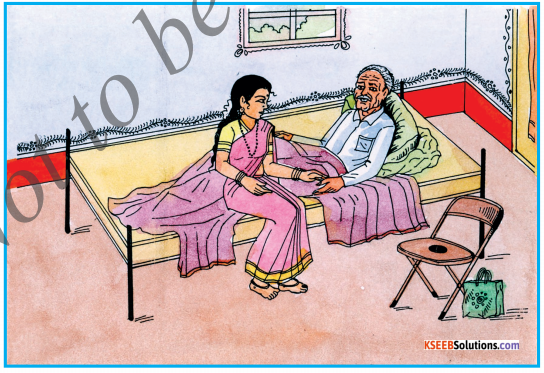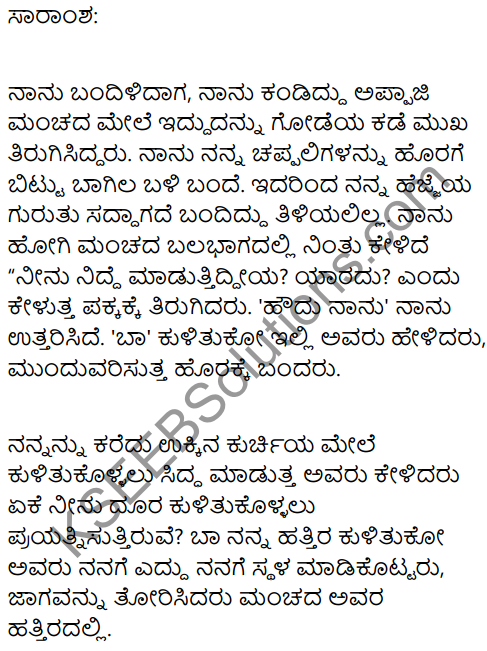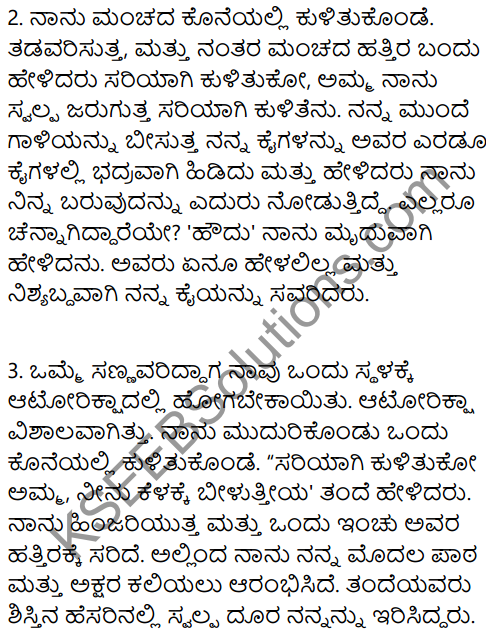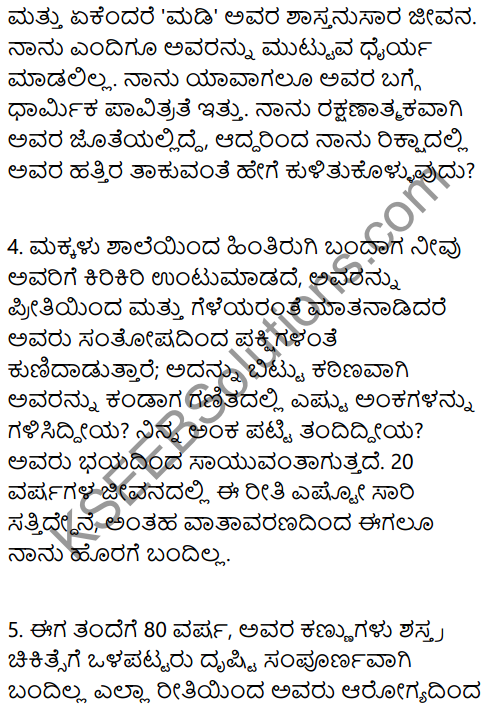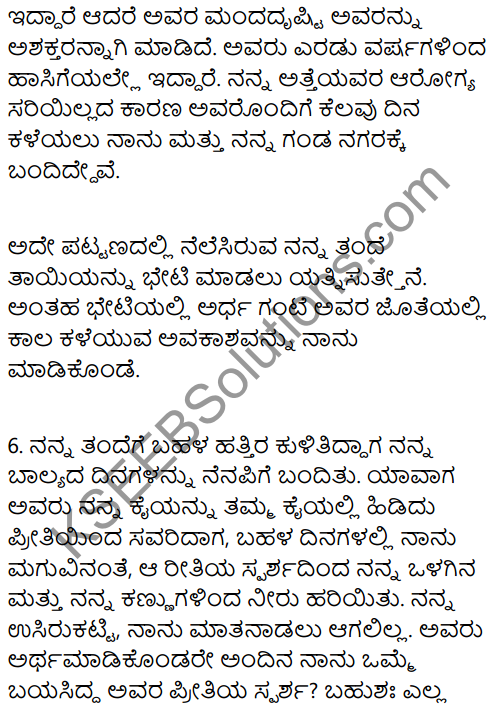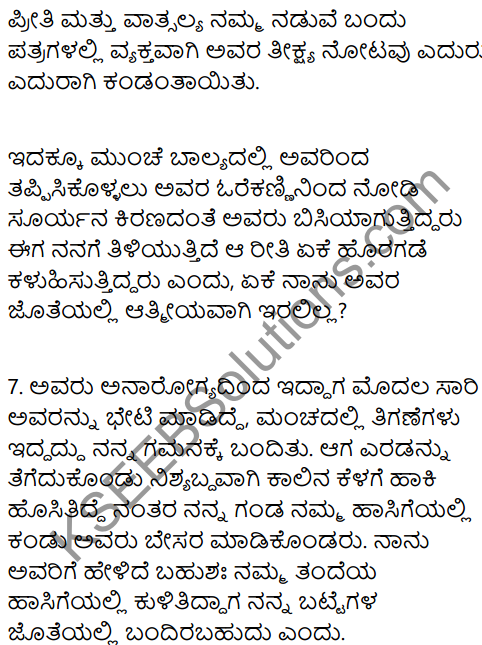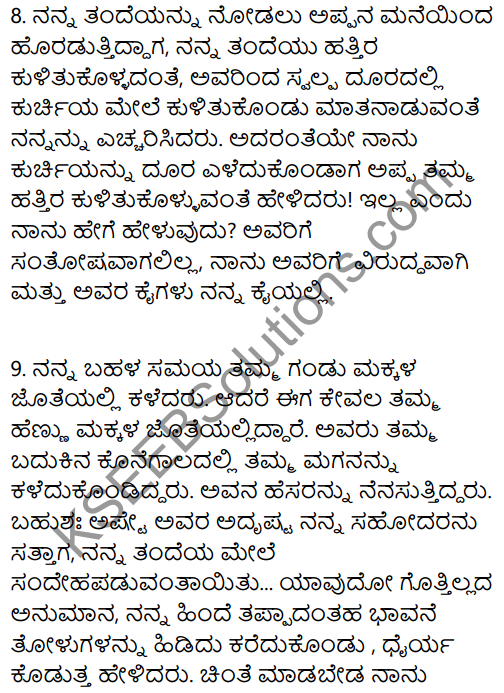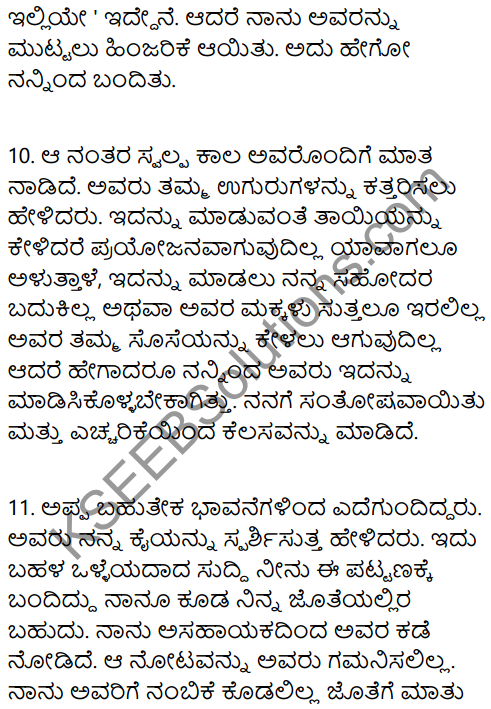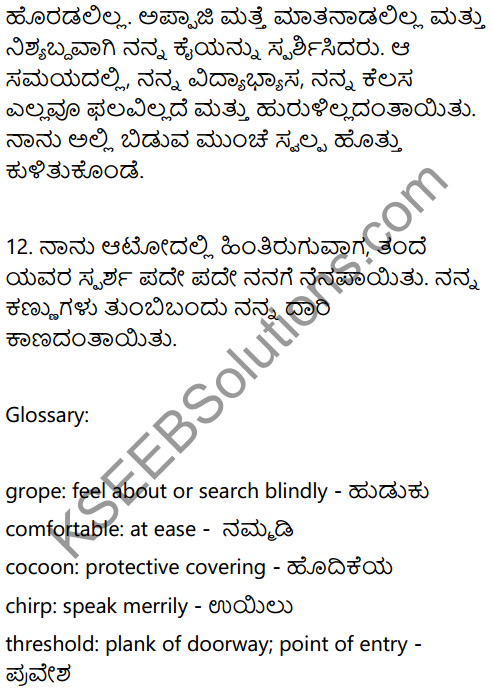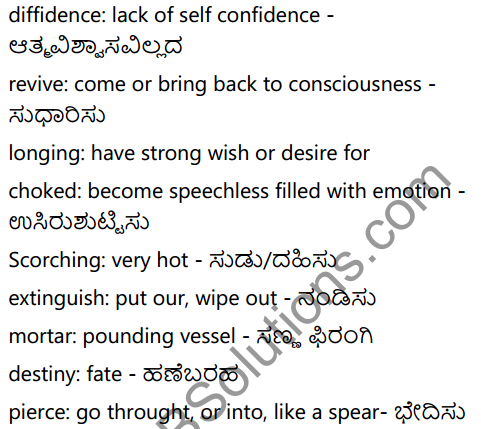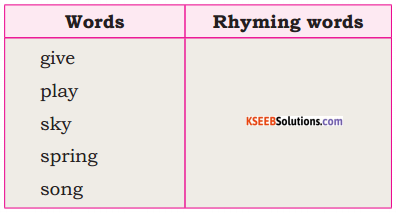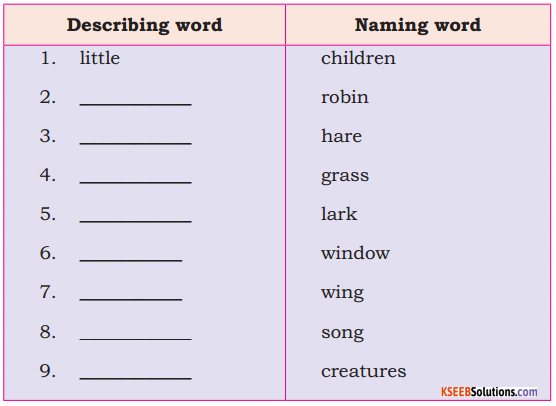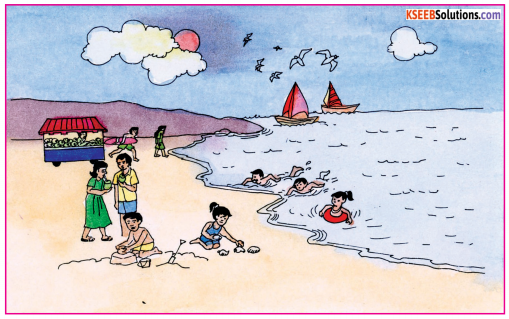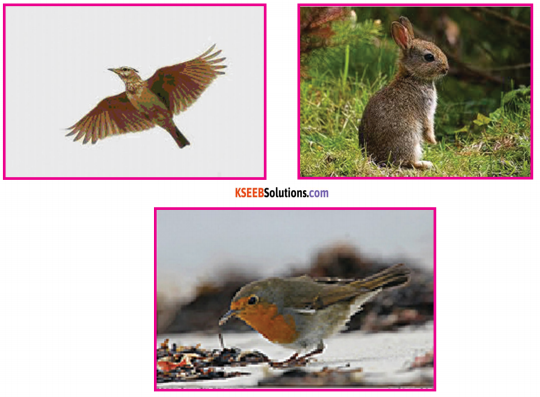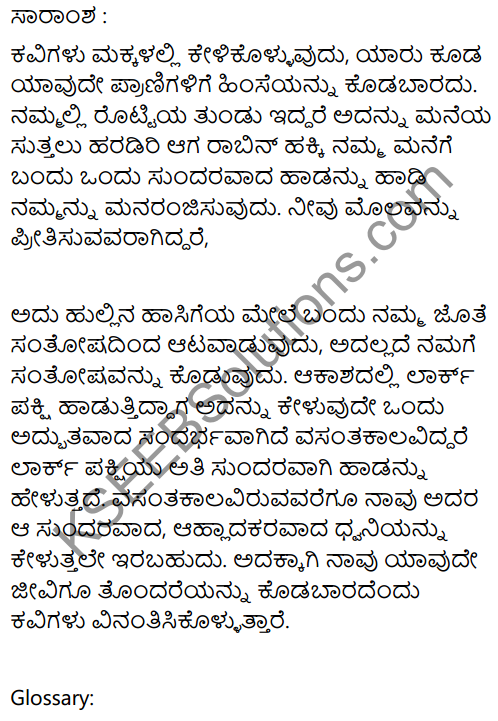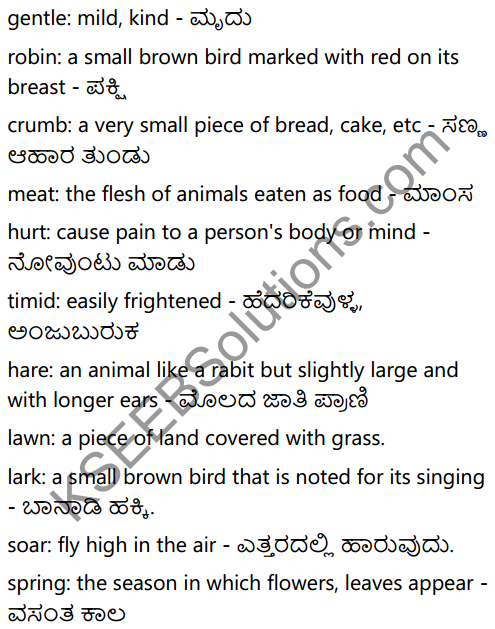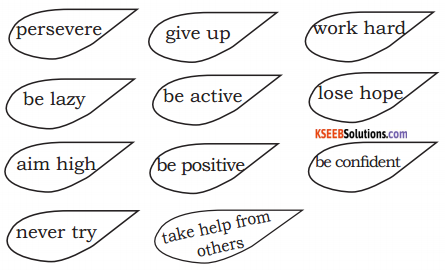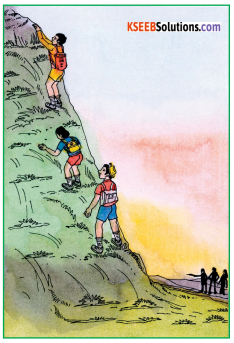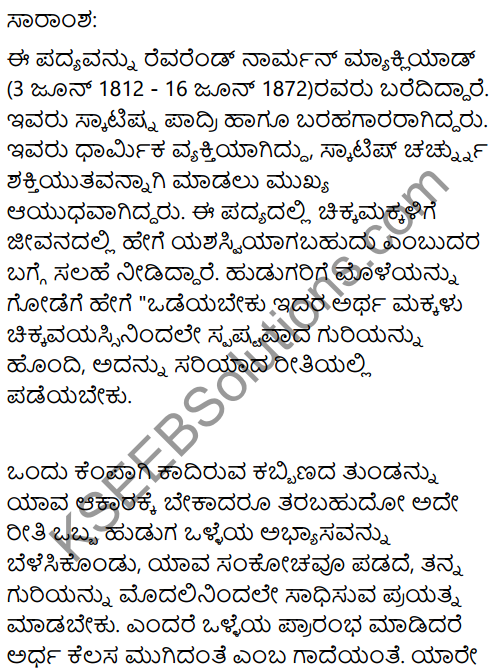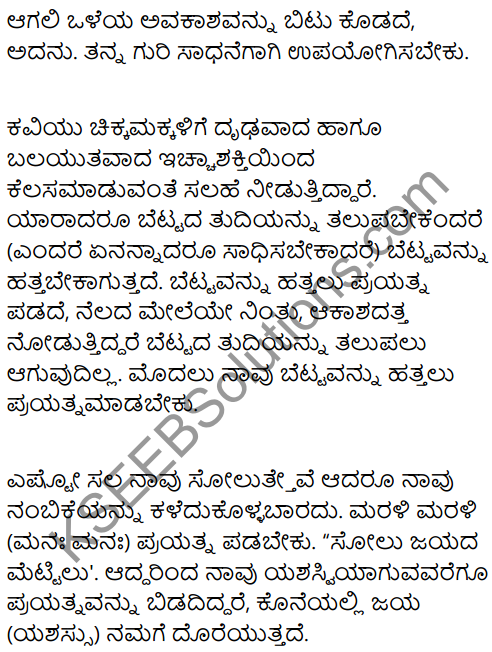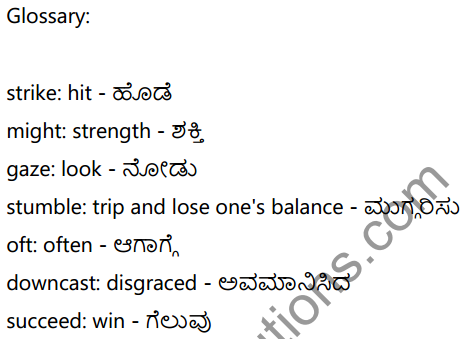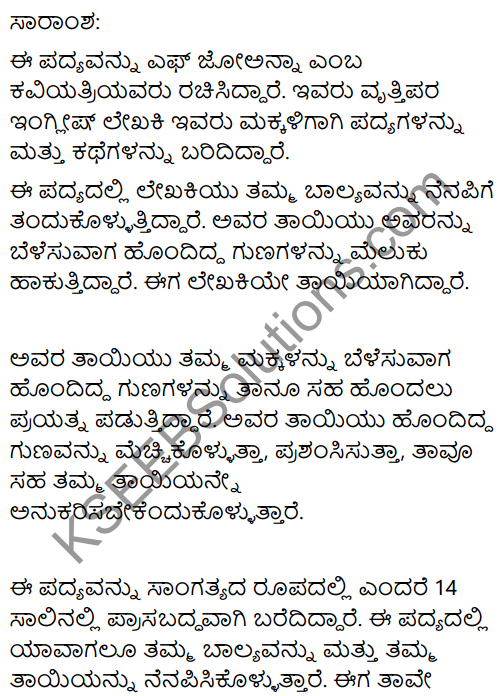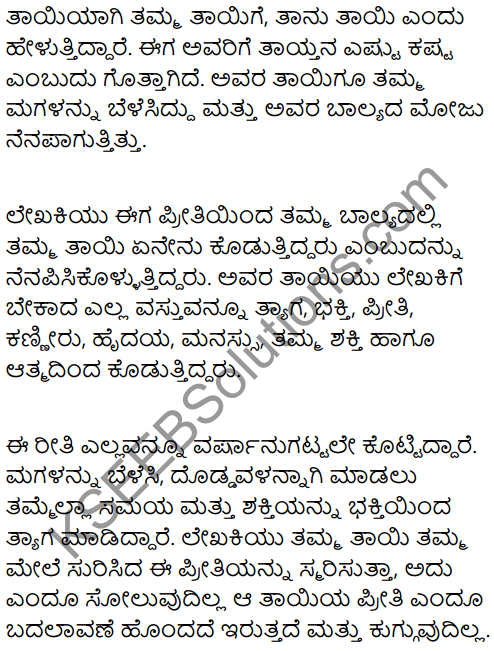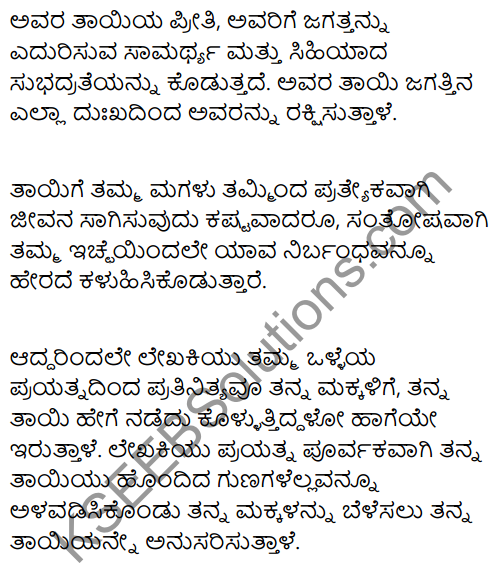KSEEB Solutions for Class 6 English Poem Chapter 7 My People Free PDF Download is available here. Karnataka State Board Class 6 English are prepared as per the Latest Exam Pattern. Students can prepar these English Chapter 7 My People Questions and Answers, Summary, Notes Pdf, KSEEB Solutions for Class 6 English Karnataka State Board Solutions and assess their preparation level.
Karnataka State Board Class 6 English Poem Chapter 7 My People
Prepared as per the KSEEB Solutions for Class 6 English Poem Chapter 7 My People can be of extreme help as you will be aware of all the concepts. These Karnataka State Board Class 6 English Chapter 7 My People Questions and Answers pave for a quick revision of the Chapter thereby helping you to enhance subject knowledge.
My People Questions and Answers, Summary, Notes
Preparatory activity:
1. a) Write the names of the professions:
- A person who mends shoes.
Cobbler - A person who stitches clothes.
Tailor - A person who makes ornaments.
Goldsmith - A person who represents people in court.
Advocate - A person who works in the field.
Farmer - A person who sells fruits and vegetables.
Green Grocer
b) Do you know any other professions? Write them down and discuss the nature of work.
- Carpenter – makes furniture,
- Mason – builds buildings.
Let’s understand:
C1. Answer the following in two or three sentences:
Question 1.
Who are referred to as ‘they’ in the poem?
Answer:
Hard-working skilled laborers of various work are referred to as ‘they’ here.
Question 2.
“They weave cloth, but they go naked”. Why do they weave cloth? Why do they go naked?
Answer:
They weave cloth for people to dress up well but their meager income makes them go naked.
Question 3.
Why do people sigh?
Answer:
After a day-long work, if they return home empty-handed, the people sigh
Question 4.
Who does the poet refer to as God-loving men?
Answer:
Men who pose themselves as Godmen. They preach that all men are equal, but never; try to uplift the poet’s people.
Question 5.
Is the poet sympathetic to them? How do you know?
Answer:
Yes, the poet is sympathetic to them. Because the poet refers to them as ‘my people’ and highlights the miseries they suffer.
C2. Discuss in small groups and answer the following:
Question 1.
Who is the speaker in the poem? Who is he talking to?
Answer:
Dr. Siddalingayya is the speaker in the poem and he is talking to the people of India.
Question 2.
What, as mentioned in the poem, are the different activities done by them?
Answer:
Carrying stones for buildings, excavating gold. Plowing the field, sowing the seeds, cutting the crops, build shops and raise bungalows, make footwear.
Question 3.
Why does the poet have sympathy for his people?
What, as mentioned in the poem, are the different activities done by them?
Answer:
His people are all hard workers and thy work for the benefit of society. But they suffer from poverty, so he sympathizes with them.
Question 4.
Isn’t it a pity that some people build the shops but get into heavy debts? How does this happen?
Answer:
Even though the poet’s people toil day and night, they are paid a pittance. Many of them can’t offer even a square meal a day because of their meager earnings. They are forced to borrow money from their employer’s for huge interest rates. The employers deduct the loans from their payment and the poet’s people go home empty-handed or borrow again.
Question 5.
What do you think should be done to solve their miseries?
Answer:
The government should take the responsibility of maintaining the equal status of people in the country. The daily wage workers must be well paid and enjoy all the benefits from the government like the government employees.
Let’s appreciate:
- Select and write the five most important words from the poem. Say why you chose those words. Import words from the poem
- They get kicked until they swoon
- They weave cloth, but they go naked
- They cut the crops and they are baked in the sun
- When they collapse on the street, they don’t cry for help
- They fall at others’ feet and they get kicked.
- The poem highlights the miseries of downtrodden society in our country. India is the only country Where the rich are getting richer and the poor are getting poorer. Most of the rich are not aware of the difficulties olf the, poor. In this way, the poem paves a way for. their clear understanding.
My People Summary in English
Dr. Siddalingaiah is a professor of Kannada in Bangalore university. He is a major Kannada poet. He pioneered the Dalit voice in 1975. The trendsetting work on Dalit literature in Kannada is ‘Holemaadiagana Haadu’ (1975) a collection of poems by Siddalingaiah. His autobiography. ‘Ooru Keri’ is translated into English. Many of his poems are translated into various Indian and other languages.
Dr. Sumathedra Nadig is a prominent modern poet. His ‘Dampatya Gita’ has been translated into English, Hindi, Bengali, and other Indian languages.
In the poet ‘My People’ Dr. Siddalingaiah, the poet highlights the miseries of his people the ‘Dalits’. Dalits have been socially marginalized by others in Indian society. In the days gone by Dalits never had an opportunity to get educated and this led to their oppression.
They were forced to work as landless laborers, paid meagerly, and led a life of poverty. They have suffered unknown miseries. In the poem, the poet says that his people carry stones for buildings.
They are forced to do hard labour. If they are not quick enough to do the work assigned to them they are kicked until they faint. Even though they toil day and night, they are paid a pittance. Many of them can’t afford two square meals a day and so die of hunger or malnutrition.
The poet’s people, go deep into the gold mines, risking their lives and limbs to excavate gold, even though they help to produce the most valuable metal on earth, they don’t get a meal a day, because they are paid a meager wage from their toil.
These people weave cloths to protect the modesty of all people, but they themselves go naked because they can’t afford the clothes they themselves weave. These people plough the fields of rich landlords.
They sow the seeds and harvest the crops by toiling in the hot sun. They get baked (burnt) in the sun – many of these people are enslaved into bonded labour because they have borrowed money from the landlords.
All the money they earn by labouring at the Landlords fields is deducted for the loans they have to repay, so they go home empty-handed. They have a deep sigh in sorrow and live a life of misery and poverty.
These people build shops and raise buildings. They are ensnared in a web of heavy debts. In spite of poverty and starvation, they do not cry out for help when they are in a difficult situation. They suppress their cries for help because they know that no one will help them, no one will come to their aid and relieve them of their misery.
They pay heavy interest for the loans they borrow (they pay interest through their noses). The politicians use them as their vote banks. They make fiery speeches about their upliftment and get elected. These people lured by their enticing promises elect them, only to be let down by the politicians – ‘They become ash in the fire of fiery speeches.
Men often project themselves as God-loving people but these men (Guru’s and math – heads) live a life of luxury. The poet’s people make footwear for these Godmen.
If the poet’s people fall at other’s feet i.e, if they plead for help they are kicked. But they are ignorant of the ways of the other men who assure them of their upliftment. They devote themselves to these men and listen to anything said to them.
But they never get any help, they are left to fend for themselves. They live on air. They live a life of poverty and misery, these people, the poet’s people.
My People Summary in Kannada
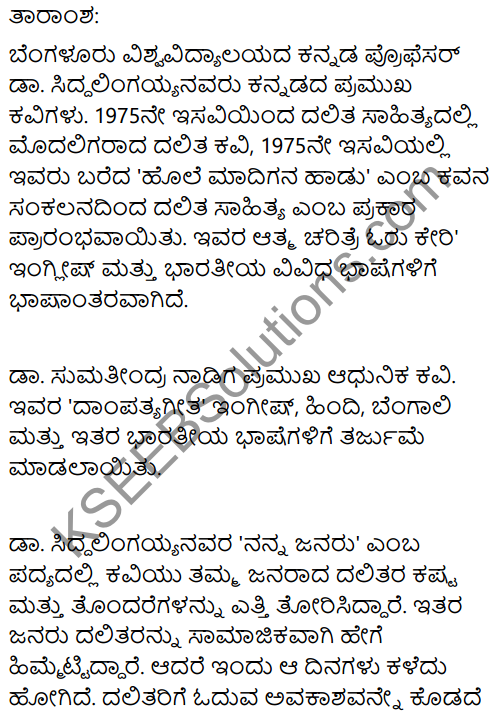
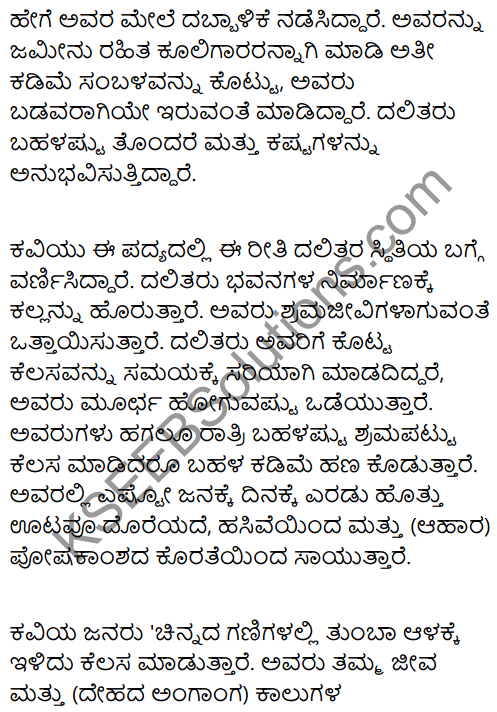
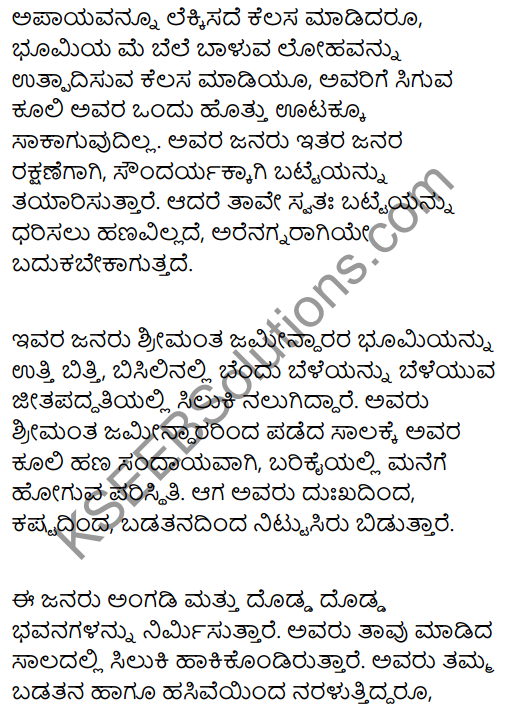
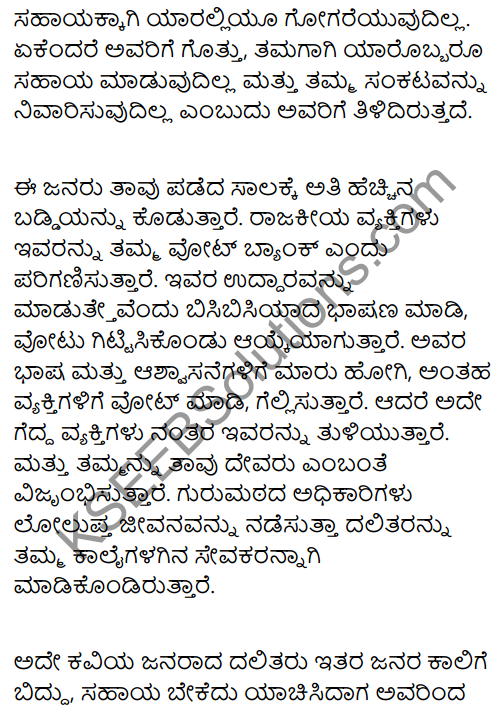
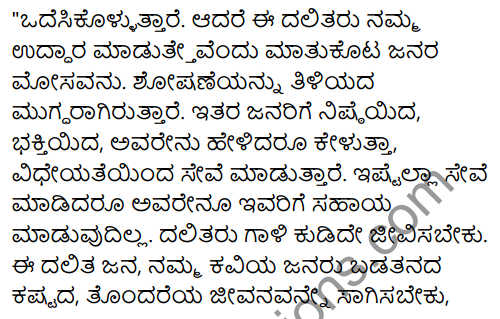
Glossary:
site: an area that is used for building
swoon: faint
excavate: dig up
weave: make clothing, on a machine
plough: a large tool used by farmers to turn over the soil before planting crops.
sigh: make a noise when you breathe out, often when you are sad.
misery: sadness and suffering
debt: an amount of money that you owe someone
collapse: fall down
suppress: hold back
restrain ash: the soft, grey powder which remains when something is burnt.
devote: use time or energy for a particular purpose
Hope the information shared regarding KSEEB Solutions for Class 6 English Chapter 7 My People Questions and Answers is true and genuine as far as our knowledge is concerned. If you feel any information is missing do react us and we will look into it and add it accordingly.
